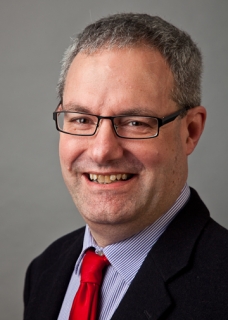History Professor Lou Roper presented at seminar on English and Dutch colonialism
 Lou Roper, SUNY Distinguished Professor of History, presented a paper to the New Netherland Institute Scholars Seminar on Nov. 15, detailing his scholarship on English and Dutch colonialism.
Lou Roper, SUNY Distinguished Professor of History, presented a paper to the New Netherland Institute Scholars Seminar on Nov. 15, detailing his scholarship on English and Dutch colonialism.
Roper’s paper, titled “Poachers Turned Gamekeepers: The Guinea Company and How English Overseas Interests Became a ‘State’ Matter,” tracks European overseas colonization was twinned with trafficking in enslaved Africans during the Early Modern period. In the English case, a network of merchants and aristocrats had cornered the “Guinea trade” by 1640 using Barbados as the western terminus for their importation of enslaved Africans to America.
In 1645, this group gained control of the Guinea Company whose charter enabled them both to connect their African and American interests to trade for Asian commodities demanded by African merchants and to use their economic status and governmental connections to direct mid-seventeenth century English commercial and political policies and, by extension, the development of the English Empire.
Their activities generated friction with their Dutch competitors that generated three wars fought by England and the Dutch Republic between 1652 and 1674. These conflicts resulted in the English takeover the Dutch colony of New Netherland which was renamed New York in honor of James, duke of York, heir to the English throne and a leading sponsor of the Royal African Company that succeeded the Guinea Company’s interest in 1672.
Once a month, the New Netherland Institute hosts a seminar via Zoom, where academics, historians and graduate students meet to discuss their scholarship centered around the history of New Netherland and the Dutch Atlantic World.
Roper is a SUNY Distinguished Professor, the highest academic honor in the SUNY system, and a Fellow of the Royal Historical Society and the New York Academy of History.
His appearance at the New Netherland Institute seminar is an extension of his renowned scholarship in the areas of Early Modern England and Colonial American history, research he has actively pursued since joining the New Paltz faculty in 1995.
Click here for more information on the Department of History at New Paltz.
